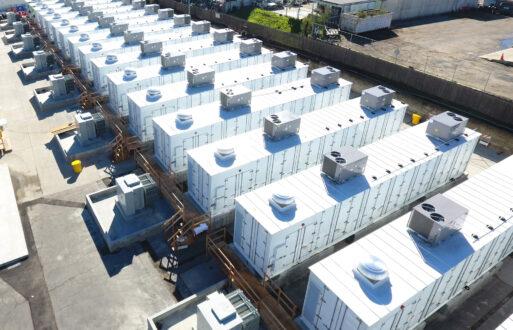In September 2020, the Federal Energy Regulatory Commission (FERC) issued FERC Order 2222, a regulatory change designed to allow smaller distributed energy resources (DERs) to participate in wholesale markets with larger, more traditional resources. DERs are small-scale generation or energy storage devices like commercial or residential solar arrays, batteries, or natural gas-powered emergency generator backup systems.
While this new regulation represents a fundamental shift in how utilities do business, at PCI Energy Solutions, we believe it also offers several opportunities. In this article, we’ll provide a brief FERC 2222 summary. We’ll talk about the prospects of DER aggregates and how utilities can ensure they’re prepared for an influx of new, smaller-generation resources.
New opportunities for utilities: FERC 2222 explained
FERC 2222 will enable many new business models for clients, but growing interest is coupling distributed energy resource aggregation with energy service provision.
Essentially, the utility can take the energy generated by multiple smaller DERs, aggregate them into a single market resource, or DER aggregate, and then offer some portion of that electricity to the wholesale market.
Additionally, the utility can offer to sell or lease distributed energy resources hardware such as solar panels, backup gas generators, or battery storage systems to their customers. Such agreements can include long-term service agreements under which they would operate and maintain the equipment for their customers.
Such a business model re-imagines how utilities can partner with their energy customers in planning and meeting their specific energy needs through the Energy Transition. At PCI, we see it as a great opportunity for utilities to expand the energy leadership they have provided for so many years to their communities and clients.
A fundamental shift
Naturally, several technical challenges have to be resolved for this to be a workable business model for utilities, not the least of which is the need to scale up existing systems to manage the coming complexities.
Today when it comes to the grid, utilities operate a handful of large-scale resources. A utility may have, for example, a mix of resources between 5 megawatts (MW) and 1,000 MWs each that it manages. Under FERC 2222, they could manage hundreds, if not thousands, of small resources. One DER aggregate might include 30 100 kilowatts (kW) resources, each owned by a different customer. The aggregate could be a mixture of one customer’s gas generator, another’s rooftop solar array, and yet another’s battery storage system.
For each DER aggregate the utility adds, the complexity of managing those resources increases as the utility has to ensure that the aggregated resources generate the energy promised to the market.
Exponentially more data
It’s one thing to support energy resources functionally, but with FERC 2222, utilities will have to do it on a much larger scale; they may have 50 times as many resources as they do today, meaning they’ll need to collect 50 times as much data. As utilities look to implement this new order, they’ll need to address six key areas when it comes to data:
- Utilities need to capture each resource, register them internally in their portfolio, and register their mapping to the distributed energy resource aggregates for pairing with the wholesale market.
- Utilities must develop strategies to bid and offer those resources to wholesale markets.
- Utilities need a tool to analyze when to call on those options and when to use them in the offers.
- Utilities need a way to collect meter data on each resource to report aggregate behavior to the market and conduct performance analyses. It’s critical to know how well each DER responds to the market signals that it’s received.
- When they receive a market award and dispatch, the utility needs to disaggregate the information to respond to the market signals.
- Utilities need a robust settlement system that will determine what to pay each member of a DER aggregate. This process will require disaggregating market results, coupling them with the previously mentioned performance analysis, blending in the other contractual terms specific to each resource, generating invoices between the parties, and tracking the resolution of those invoices.
The benefits of DER aggregates
One of the great benefits of this DER aggregate business model is that you’re putting the resource right next to the load, significantly reducing transmission costs and the need for new long-distance transmission infrastructure. It also means a more significant portion of the energy generated can be delivered to the customer because there aren’t inherent inefficiencies associated with long-distance travel.
Additionally, with this approach, you have transparency with the end customer — they can see how they’re supporting efforts to green the planet with responsible and sustainable energy. Of note, FERC 2222 allows grid operators not only to establish their timelines for implementation but it’s also expected to help speed up grid modernization by reducing the time it takes operators to integrate renewable resources into the grid.
PCI's prescriptive approach
Through early collaboration with our customers, we see DER aggregation as a way for our clients to grow their portfolios and have better relationships with their end-customers, and we’re ready to help. Our prescriptive approach to software solutions for utilities means that our integrated platform has all the tools necessary to enable these new types of resources and contract structures. From managing and collecting data from hundreds of disparate resources to ensuring the security of that data, wholesale (ISO/RTO) market participation, reporting results, and settlements, PCI can streamline and automate DERs workflows for data-related processes.
Most of us view the electric utility as the community energy leader. At PCI Energy Solutions, we support our clients’ leadership by providing reliable software for incorporating distributed energy resources into their business. Visit our U.S. ISO Markets page to learn more about we support a broad range of market participants.







